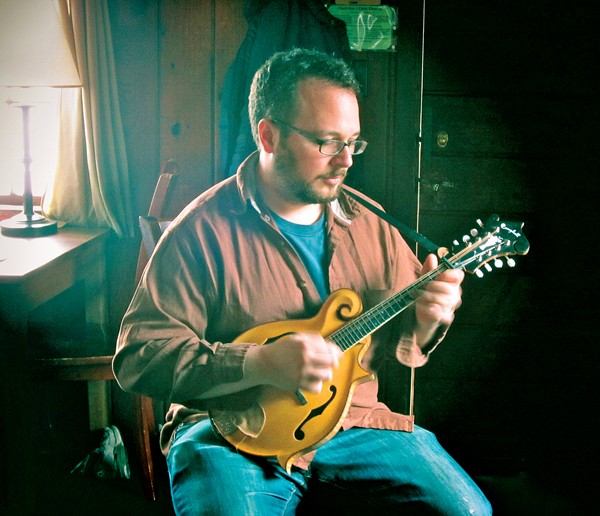On November 3rd, Taylor Swift pulled her entire catalog, including the week-old album 1989, from the streaming service Spotify to protest her compensation. Her Nashville label boss bickered in the media with Spotify CEO. Of course, Dave Grohl had to chime in, and nobody has figured anything out. That’s the state of contemporary mass-market music: a mess. But a former Memphian has a better idea.
Michael Connolly launched The Roots Channel two weeks ago. He graduated from White Station High School in 2000 and had played in and recorded a few local bands before he left Memphis to attend the University of Michigan. The Roots Channel — a collection of streaming shows including concerts and instructional programs — is a first step toward a better relationship between musicians and their marketplace.
 Amy Flesicher
Amy Flesicher
Michael Connolly
“I think [we need] to get to the point socially that the educated media consumer feels at a moral level that they should have labeling on what they are consuming,” Connolly says. “Just like what happened in the food movement. My fantasy is that you have this video and off to the side there is this little tab that’s styled after the nutrition facts. There it is, in black and white, how these people get paid. If you’re in the media business and you’re not willing to say where the money goes, it’s socially embarrassing.”
That’s Connolly’s long-term hope. Unlike many dreamers in a chaotic music industry, Connolly has a unique background that has led him to a possible solution: an advertising-free, subscription service offering lifestyle and entertainment programming to a community of like-minded media consumers. Subscribers can watch anything from a Donovan concert to instrument lessons.
“I almost went to college for clarinet performance,” Connolly says. “I was super serious about that. But I decided to do computer stuff and got into medical device software for seven years. I was trying to do something good there and was shocked at how difficult that is to do. The fact is that they are for-profit companies. You can make something, but that does not mean that everyone has access to it. That was frustrating. Meanwhile, I kept recording people and playing in bands. I got asked to come out on tour, and, eventually, I was in a position to quit my day job about five years ago. Since then, I have been doing music full time. I was in a band called Coyote Grace. We spent a lot of 2010 opening for the Indigo Girls. That was eye opening: to see someone of that level of fame still struggling to make money. I was like, ‘Man, this is kind of broken.’ It was disillusioning about what kind of big time I thought I was going to achieve.”
Connolly’s model partially grew out of a community-oriented musical experience he had growing up in Memphis. He owns Empty Sea Studios in Seattle, where he built a 40-seat listening room and films his own concert series.
“My band played at Otherlands, and my English teacher Judy Kitts was in the Memphis Acoustic Music Association,” Connolly says. “She hooked me into that world, and I got hooked on the listening-room thing. The studio has an active concert series. The programs are shot at my studio, and we do those as four-camera HD shoots. So my first attempt at doing this three years ago was just my own subscription channel for my own stuff. I realized that a lot of people were fighting to have their own proprietary subscriptions services, but nobody could generate enough content fast enough.”
At that point, Connolly made the move from content creator to content aggregator, or — more precisely in his case — curator.
“I know the people who I’m trying to help out with this,” he says. “On the patron side, it’s the people who come to these shows. Maybe they don’t come to the shows, but they are the people I meet at the farmers’ market. I know how to speak to this specific niche of people. The Fretboard Journal [a contributor] is a great example. They are kind of a Cook’s Illustrated, a glossy magazine for acoustic guitar people. They have over 100,000 Facebook people. Their demographic is very well aligned.”
Some content is available for free, but free music is not worth it to connoisseurs.
“You’re wading through the ads and the bad amount of signal to noise, Connolly says. “The idea is to curate it and put it behind a socially responsible financial model. That’s my long-term plan.”